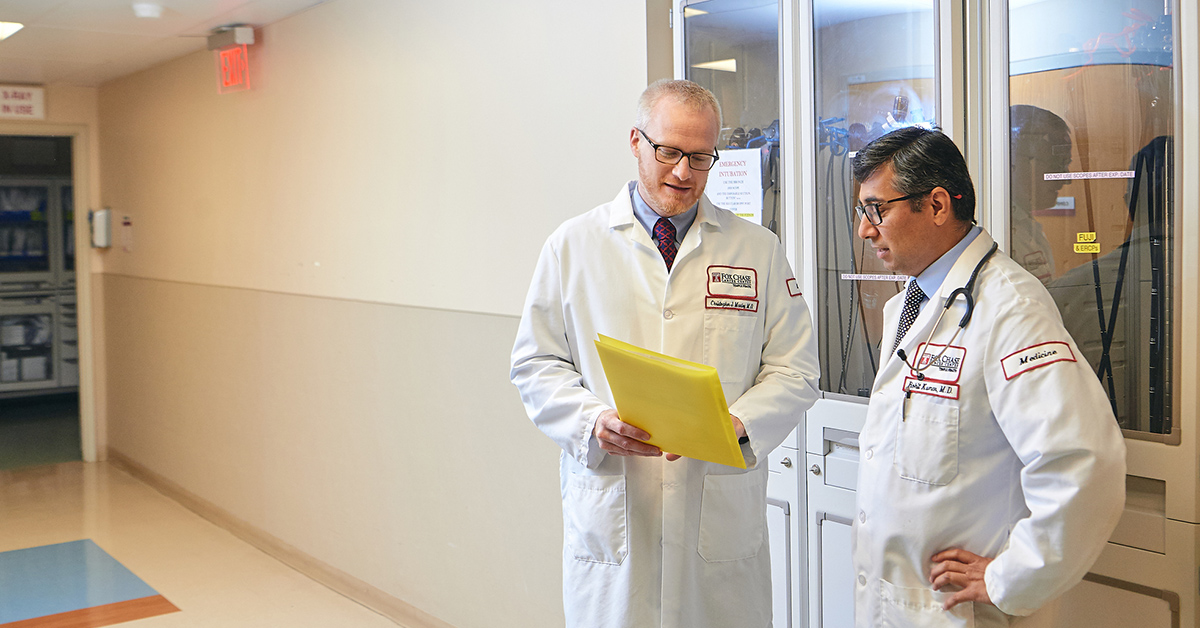
The Role of a Pulmonologist in Cancer Care
-
Your medical team at Fox Chase Cancer Center will have a diverse group of specialists to see to all aspects of your cancer care. It can include oncologists, surgeons, pathologists, radiologists, and nursing staff. You may also have a pulmonologist. Here’s what you need to know about this specialty.
Q: What is a pulmonologist?
A: Pulmonologists are physicians who focus on respiratory system health. They specialize in the diagnosis and management of disorders of this system, which includes the lungs, upper airways, thoracic cavity, and chest wall. Pulmonologists at Fox Chase diagnose and manage cancers that involve the respiratory system.
“A pulmonologist specializes in the health of the lungs,” explained Christopher Manley, MD, Director, Interventional Pulmonology at Fox Chase Cancer Center.
Q: Why might I need a pulmonologist?
A: If you have a lung nodule or lung cancer, a pulmonologist will be part of your care team. People who have cancer that started somewhere else in the body but has moved—or metastasized—to the lungs will see this specialist too. Pulmonologists play a pivotal role in the diagnosis, staging, and treatment of cancer in the lungs. They are also involved in managing any lung conditions that arise, such as fluid buildup and airway blockages.
“It’s important to remember that lung cancer or cancer that has moved to the lungs is are very complex diseases that requires the attention of someone who knows the lungs well,” Manley said.
Q: What is an interventional pulmonologist?
A: Interventional pulmonologists like Dr. Manley have advanced medical training that allows them to perform minimally invasive techniques to diagnose, stage, and treat lung cancer and its complications.
For instance, if a patient has shortness of breath or a nodule in the airway, an interventional pulmonologist can use a minimally invasive procedure (instead of opening up the chest) to take a sample of mucus or tissue for testing. Bronchoscopy is one such procedure. Airway stents—small tubes that help keep airways open—can also be inserted during a bronchoscopy.
Interventional pulmonologists also use minimally invasive techniques to ease symptoms in patients who have tumors that obstruct large portions of the lungs and to manage fluid buildup around the lungs.
Q: How are pulmonologists involved for the duration of care?
A: Like other cancer specialists, pulmonologists are constantly keeping track of your care, and follow patients at multiple points throughout a patient’s treatment journey. This is true even if you don’t see them regularly.
“The pulmonologist typically stays on through the course of a patient’s cancer treatment in case we need to manage any other respiratory-related issues, such as respiratory failure, which may come up from either the cancer or its treatment,” Manley said. “We can also help manage noncancerous issues that a patient may have, such as emphysema or an infection.”
